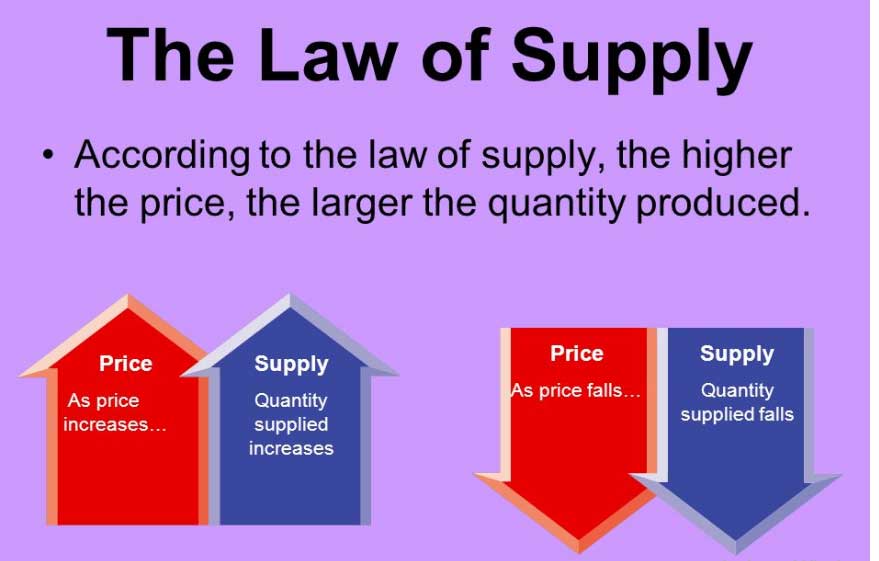The Law of Supply States That

What is Supply?
Supply refers to the amount of a good or service that producers are willing and able to sell at a certain price. The law of supply states that the quantity supplied of a good or service will increase as the price of that good or service increases, and will decrease as the price of that good or service decreases.
Factors Affecting Supply
There are several factors that can affect the supply of a good or service, including:
- The cost of production
- The availability of raw materials and resources
- The level of technology used in production
- The number of suppliers in the market
Elasticity of Supply
The elasticity of supply refers to how responsive the quantity supplied of a good or service is to changes in price. If the quantity supplied is highly responsive to changes in price, the supply is said to be elastic. If the quantity supplied is not very responsive to changes in price, the supply is said to be inelastic.
Advantages and Disadvantages of the Law of Supply
Advantages
- Encourages producers to increase production when prices are high
- Helps to balance supply and demand in the market
- Allows for efficient allocation of resources
Disadvantages
- Can lead to overproduction and waste when prices are high
- May not work well in markets with limited competition
- May not take into account external factors that can affect production
FAQs
Q: What is the difference between supply and demand?
A: Supply refers to the amount of a good or service that producers are willing and able to sell at a certain price, while demand refers to the amount of a good or service that consumers are willing and able to buy at a certain price.
Q: How does the law of supply affect prices?
A: The law of supply states that as the price of a good or service increases, the quantity supplied of that good or service will also increase. This can lead to higher prices in the market.
Q: What are some factors that can affect the supply of a good or service?
A: Factors that can affect the supply of a good or service include the cost of production, the availability of raw materials and resources, the level of technology used in production, and the number of suppliers in the market.
Q: What is the elasticity of supply?
A: The elasticity of supply refers to how responsive the quantity supplied of a good or service is to changes in price. If the quantity supplied is highly responsive to changes in price, the supply is said to be elastic. If the quantity supplied is not very responsive to changes in price, the supply is said to be inelastic.
